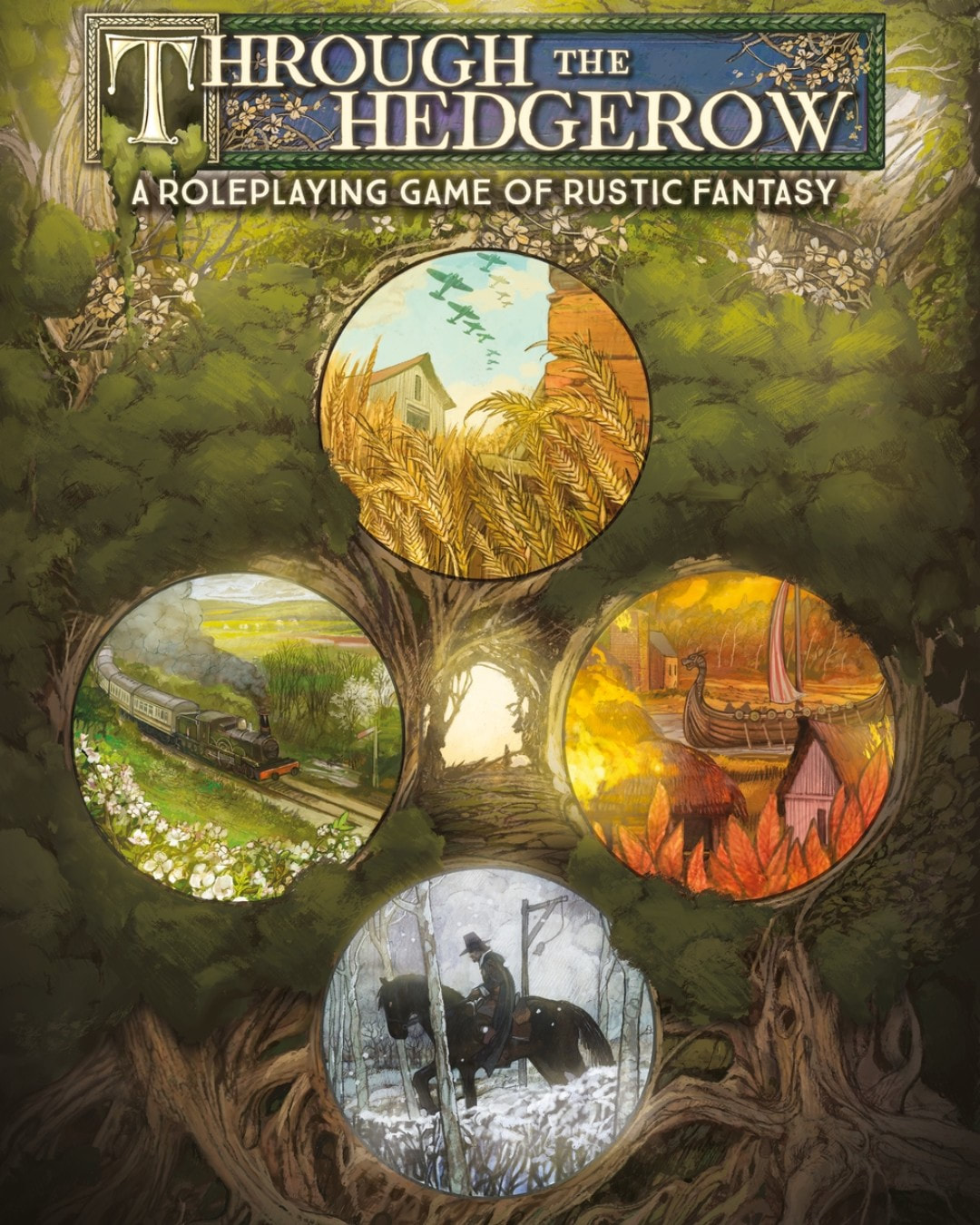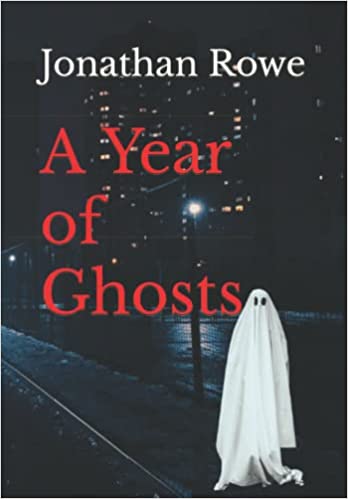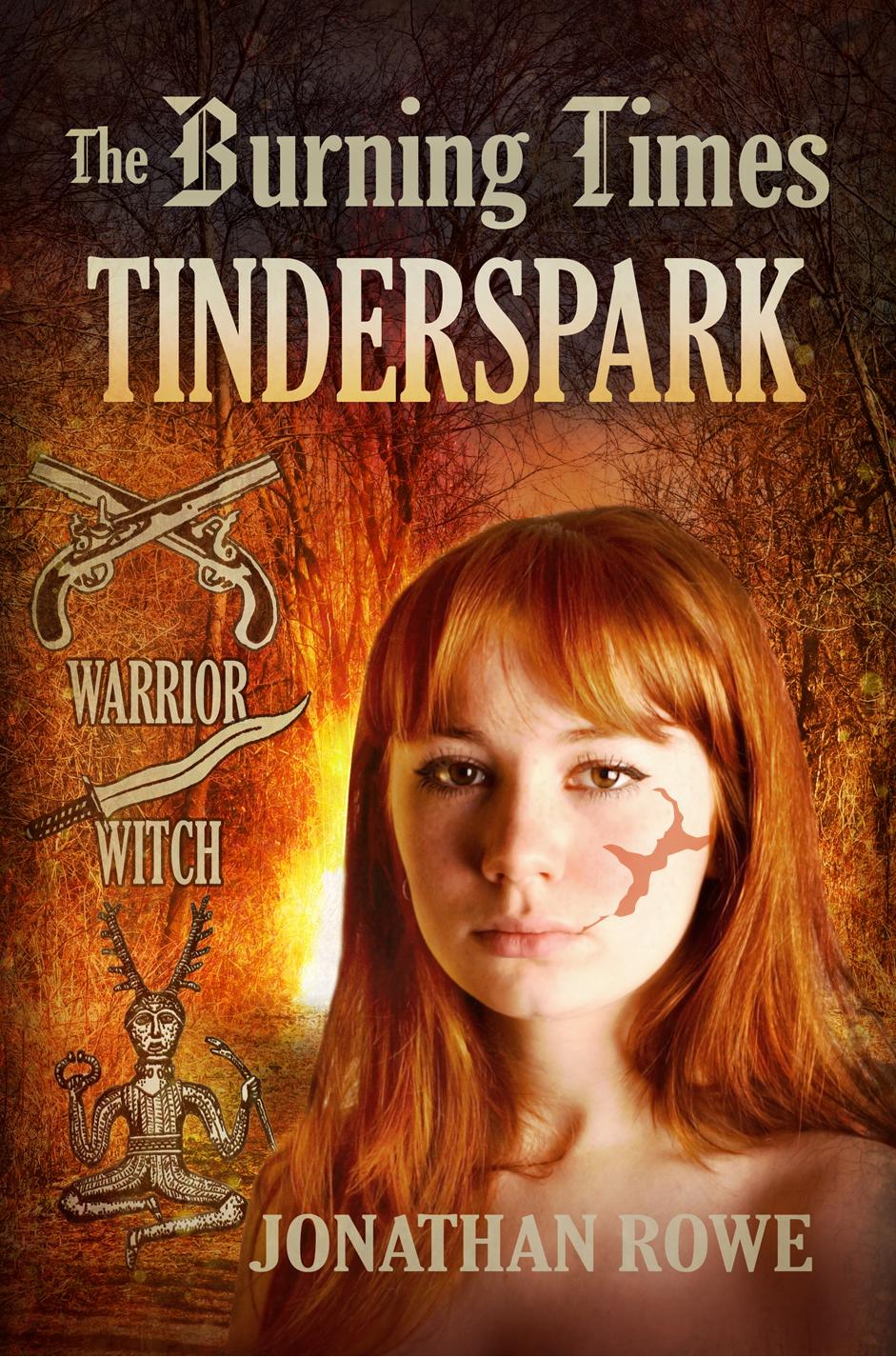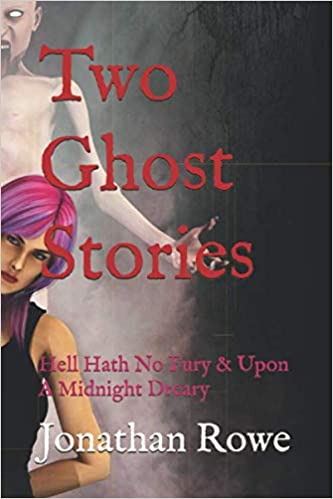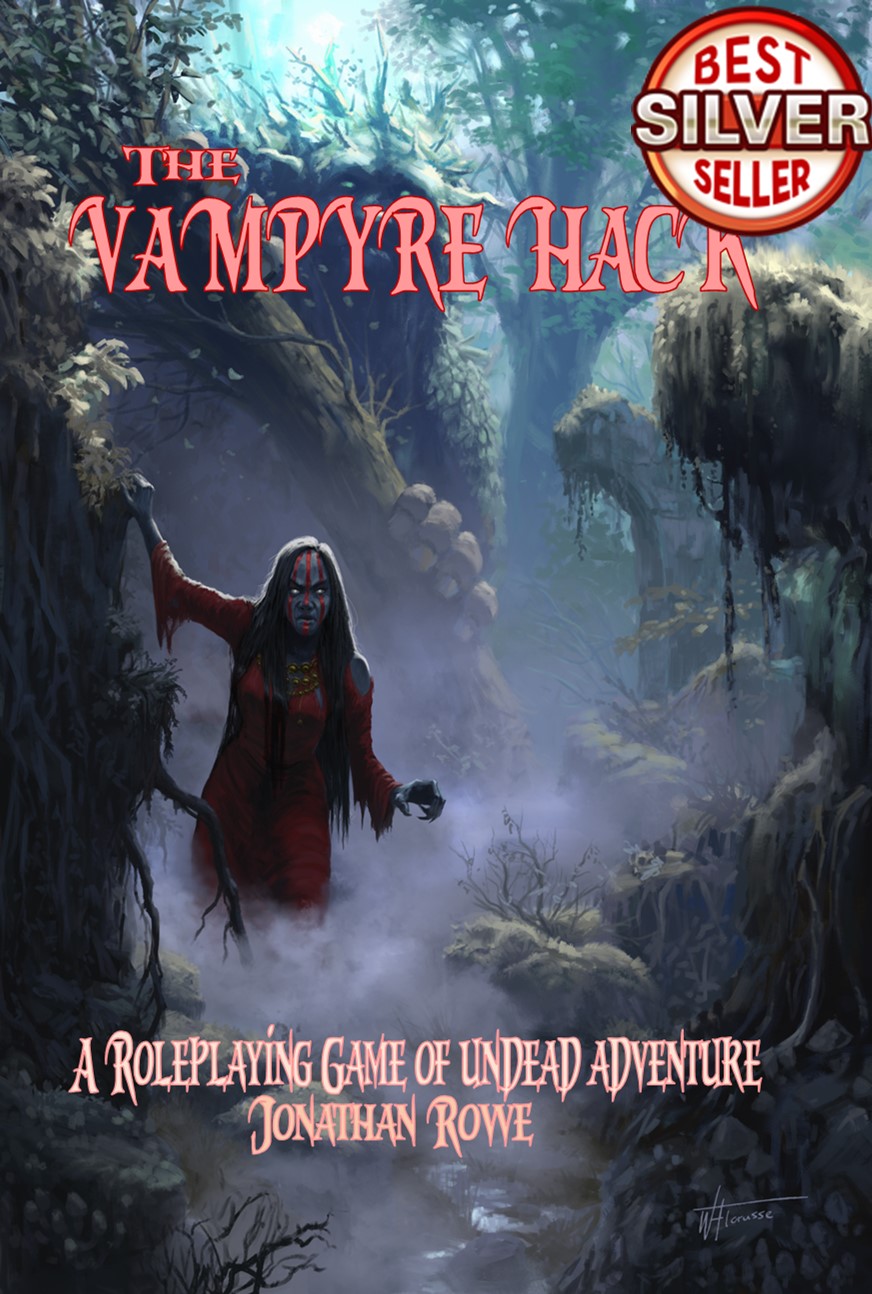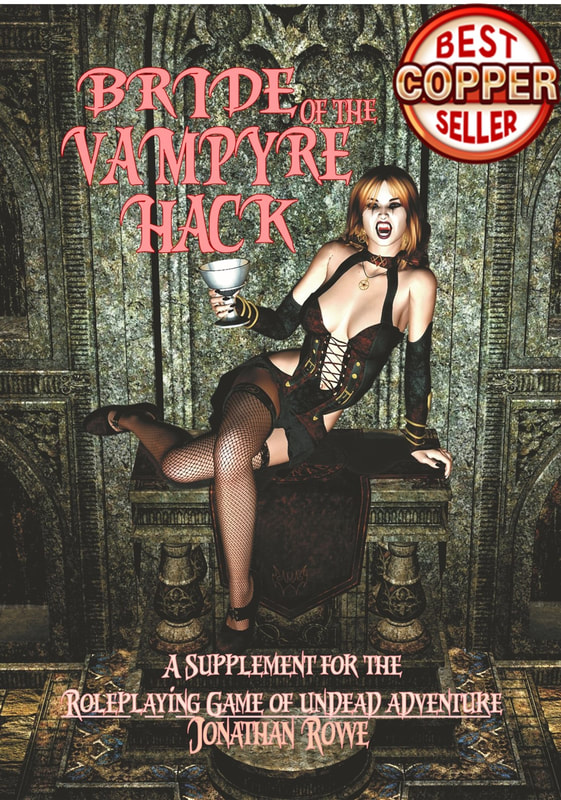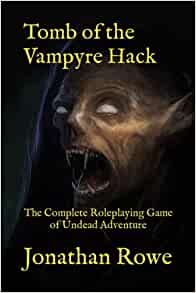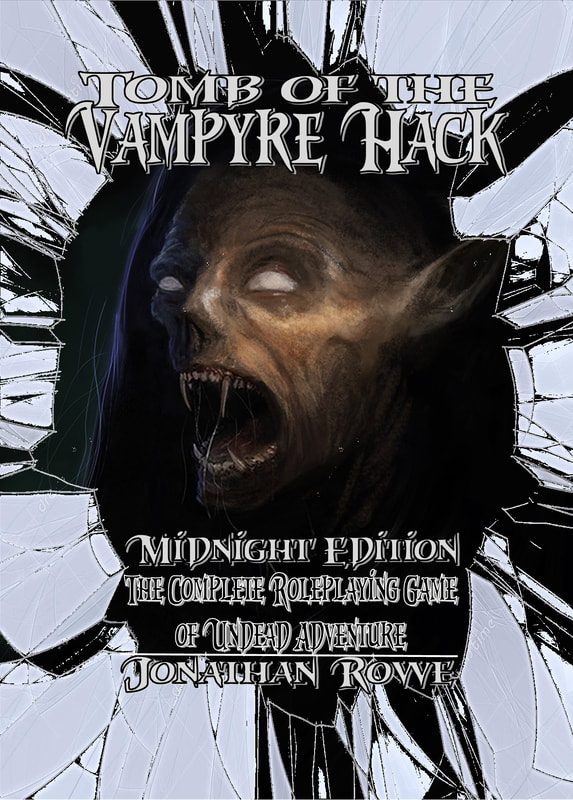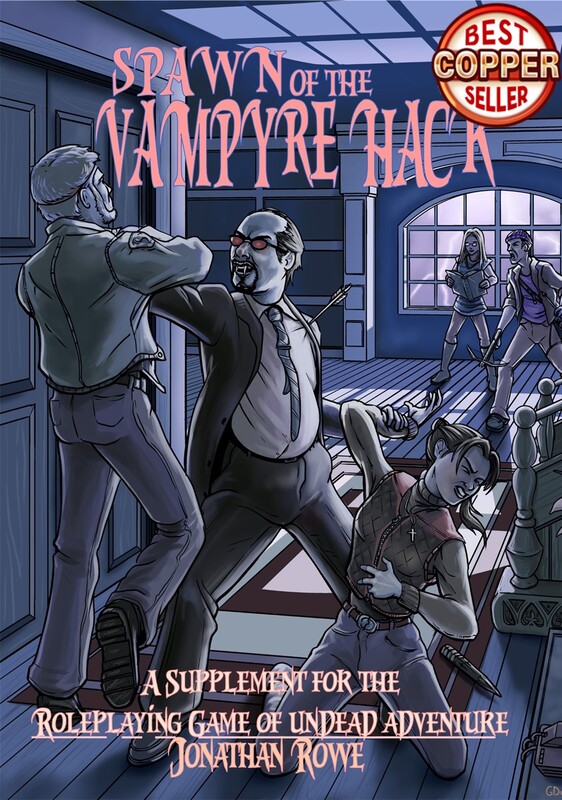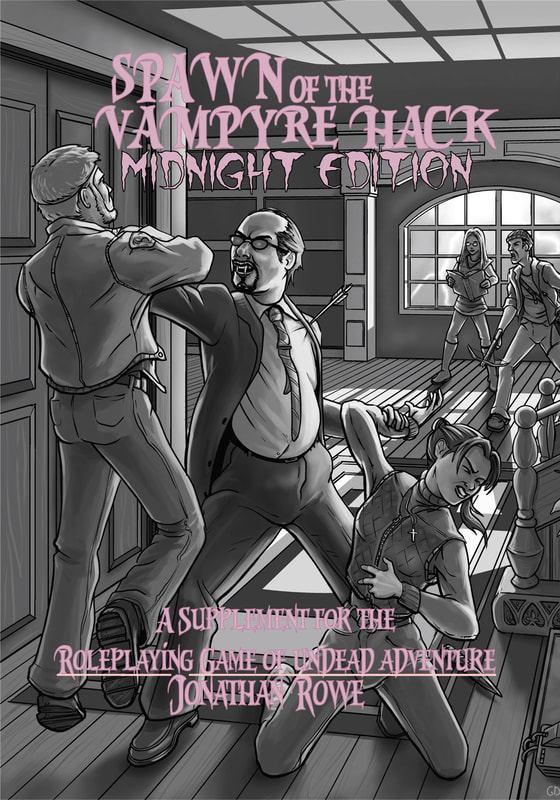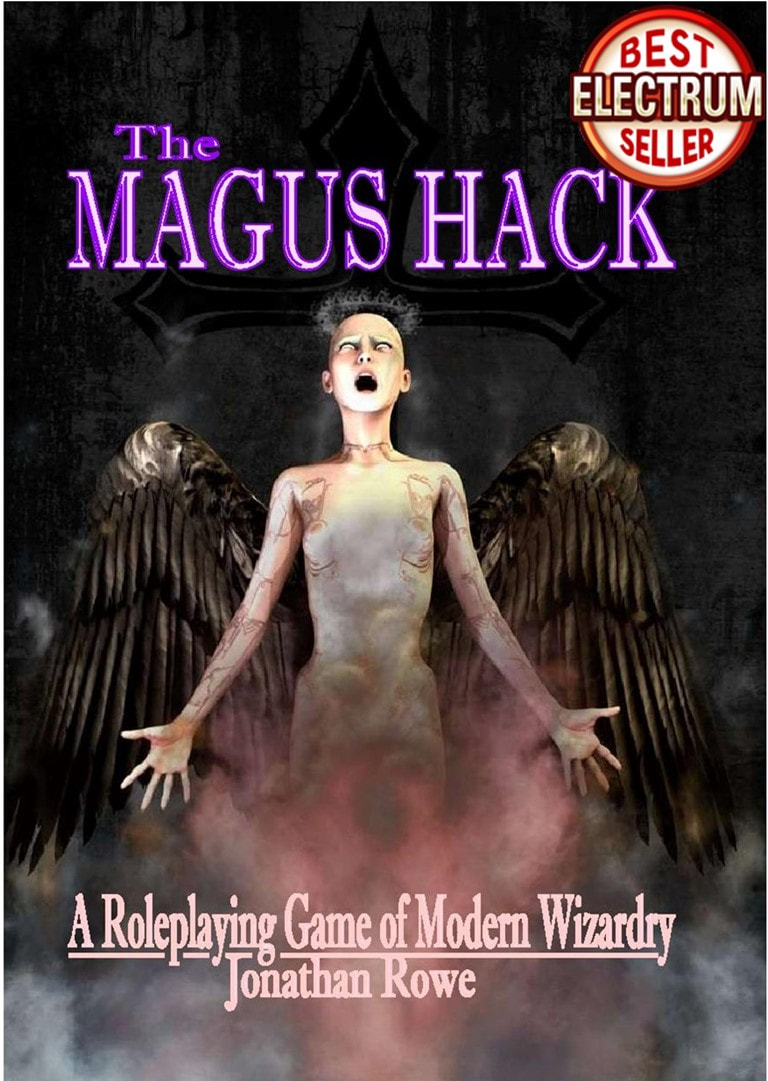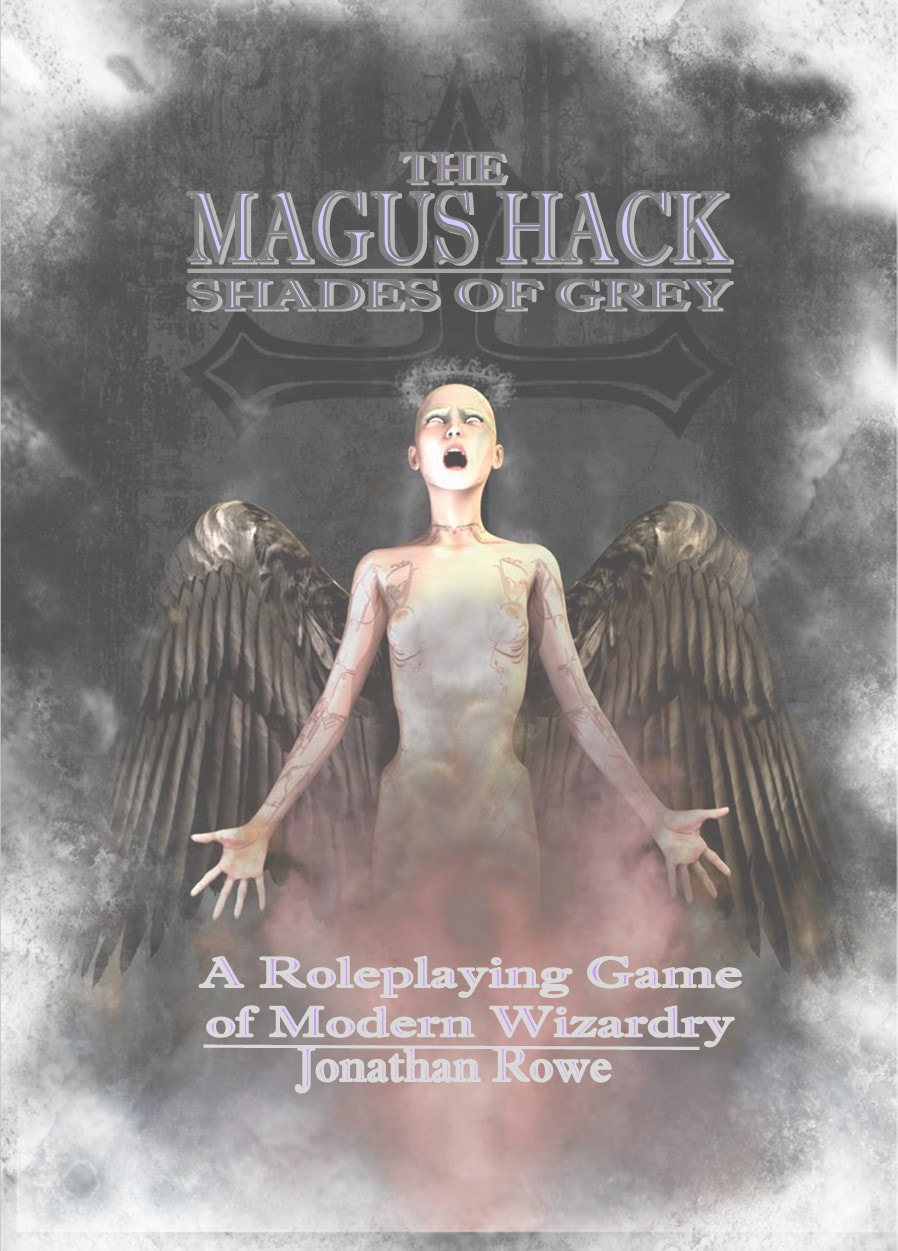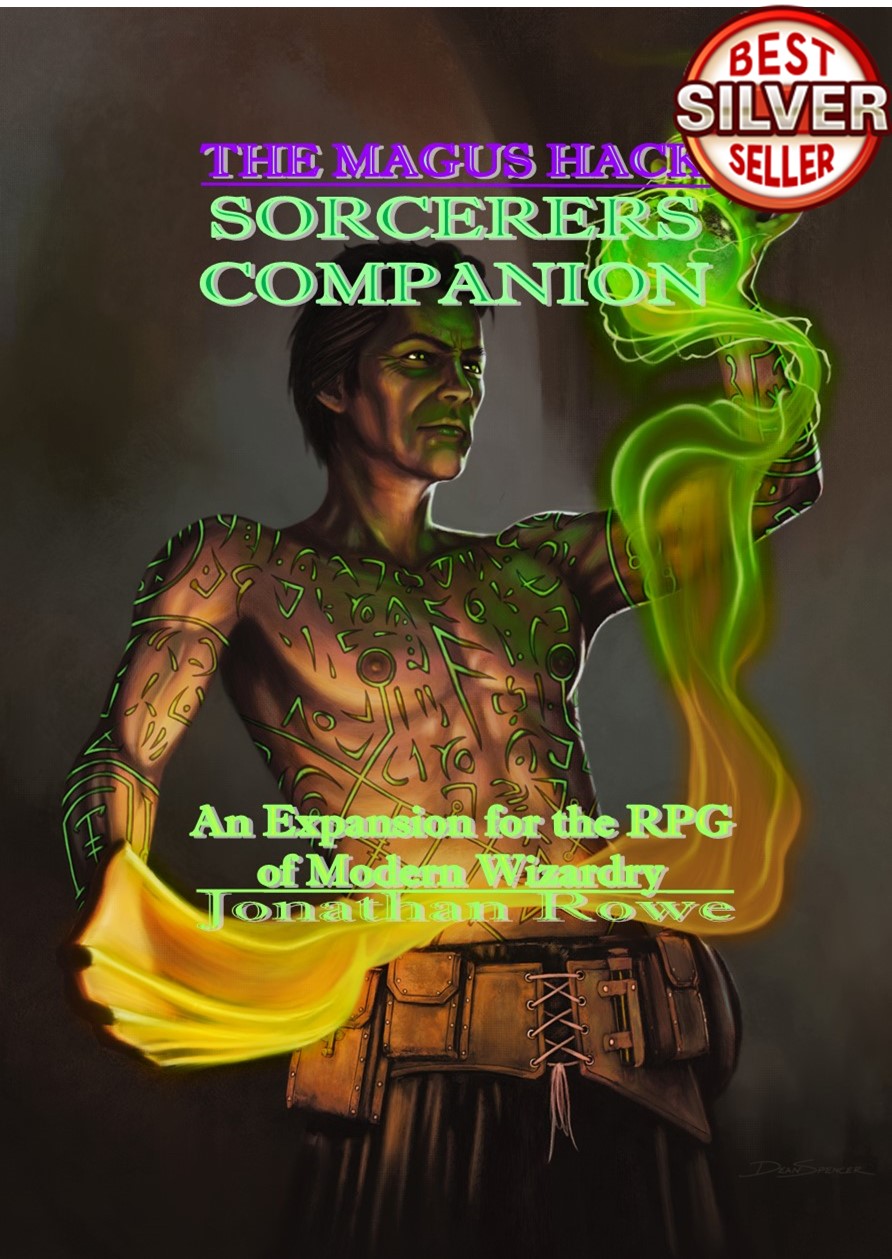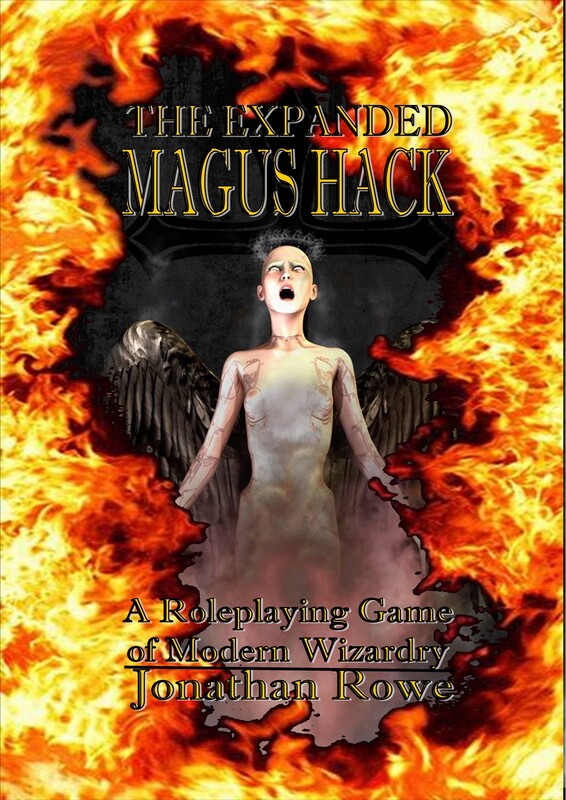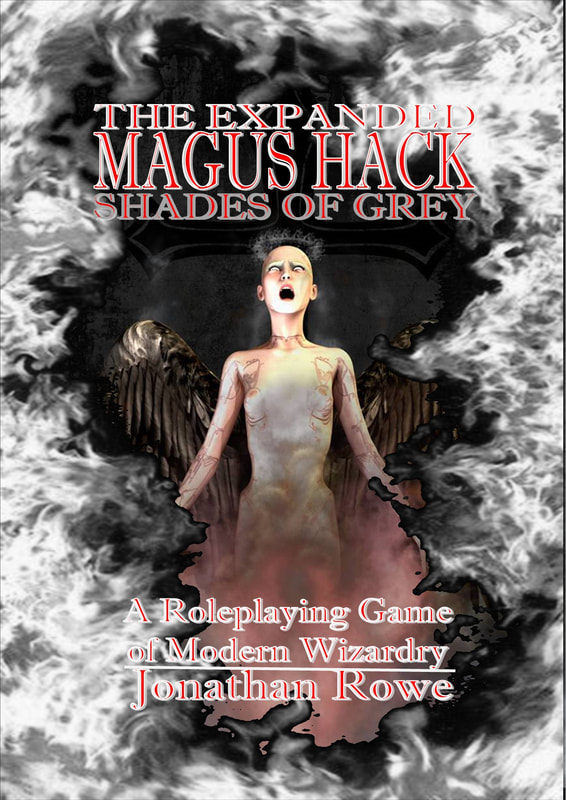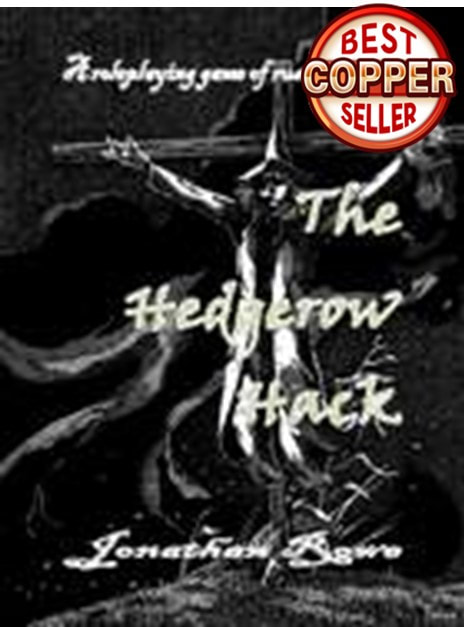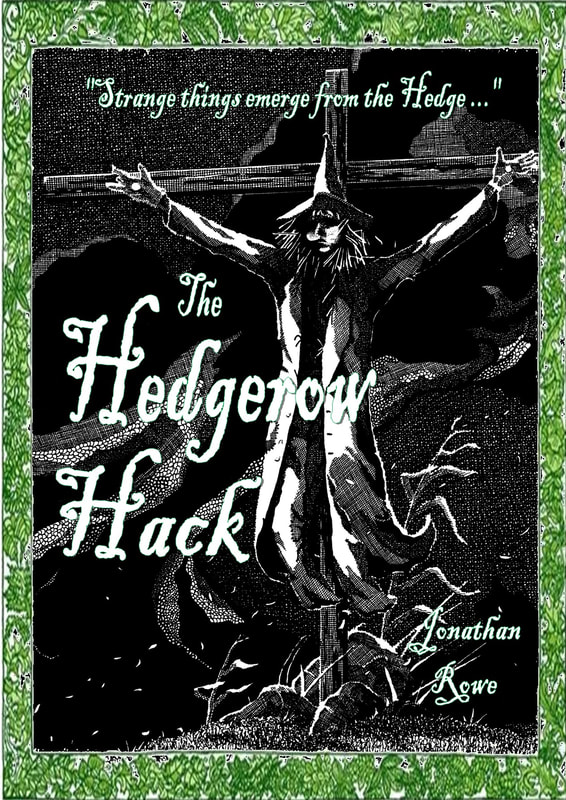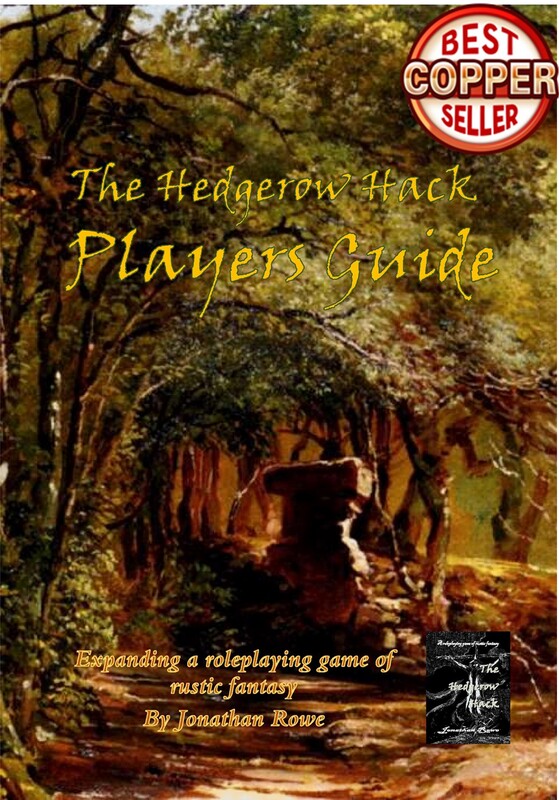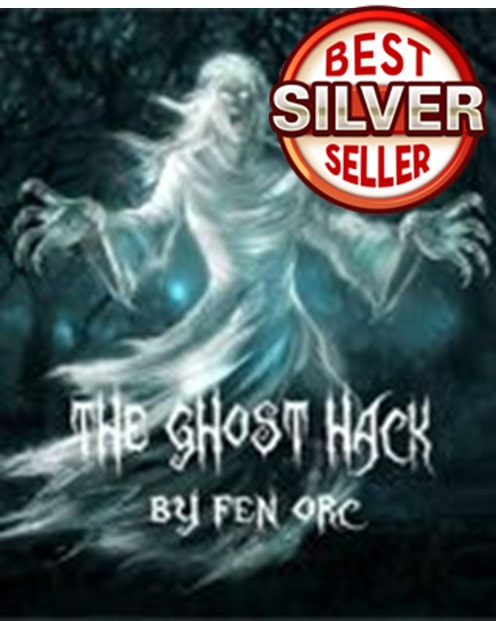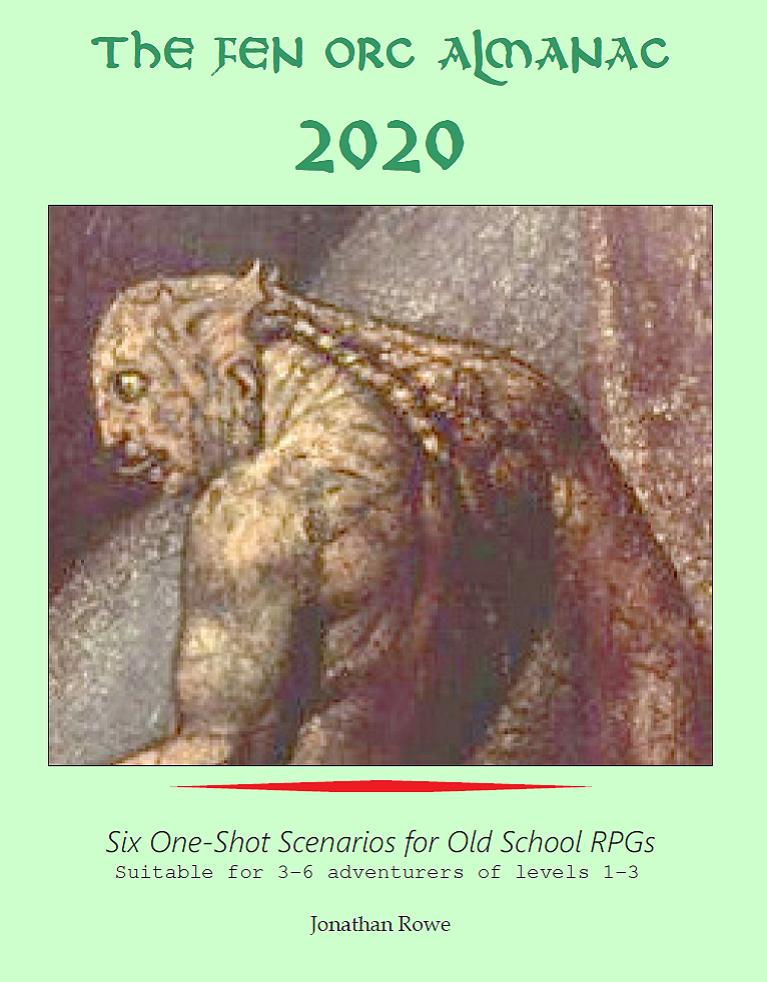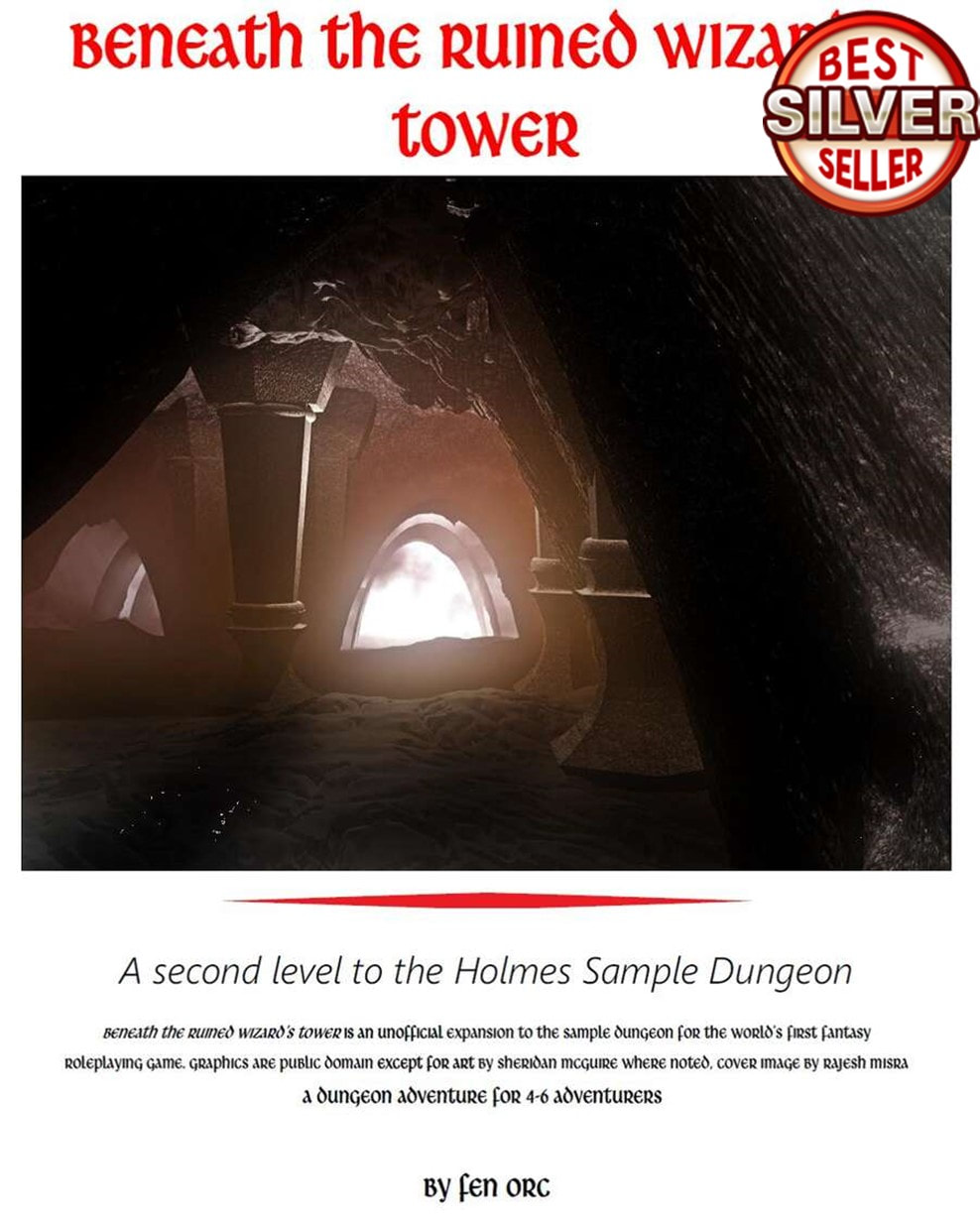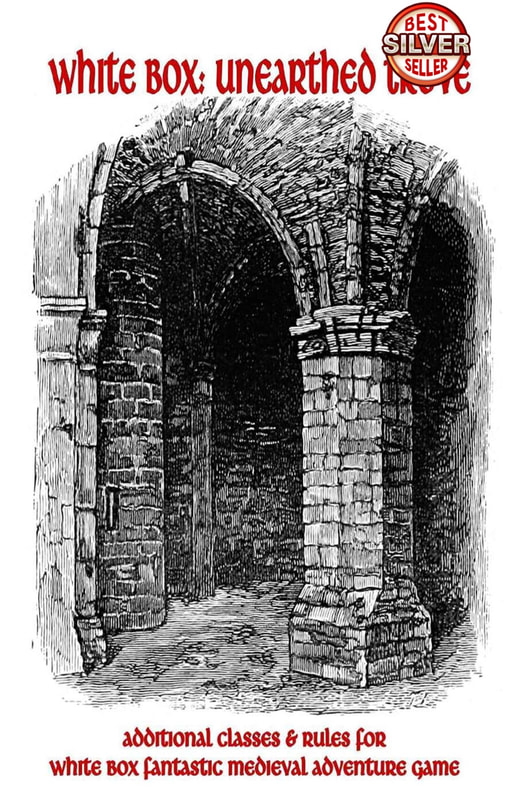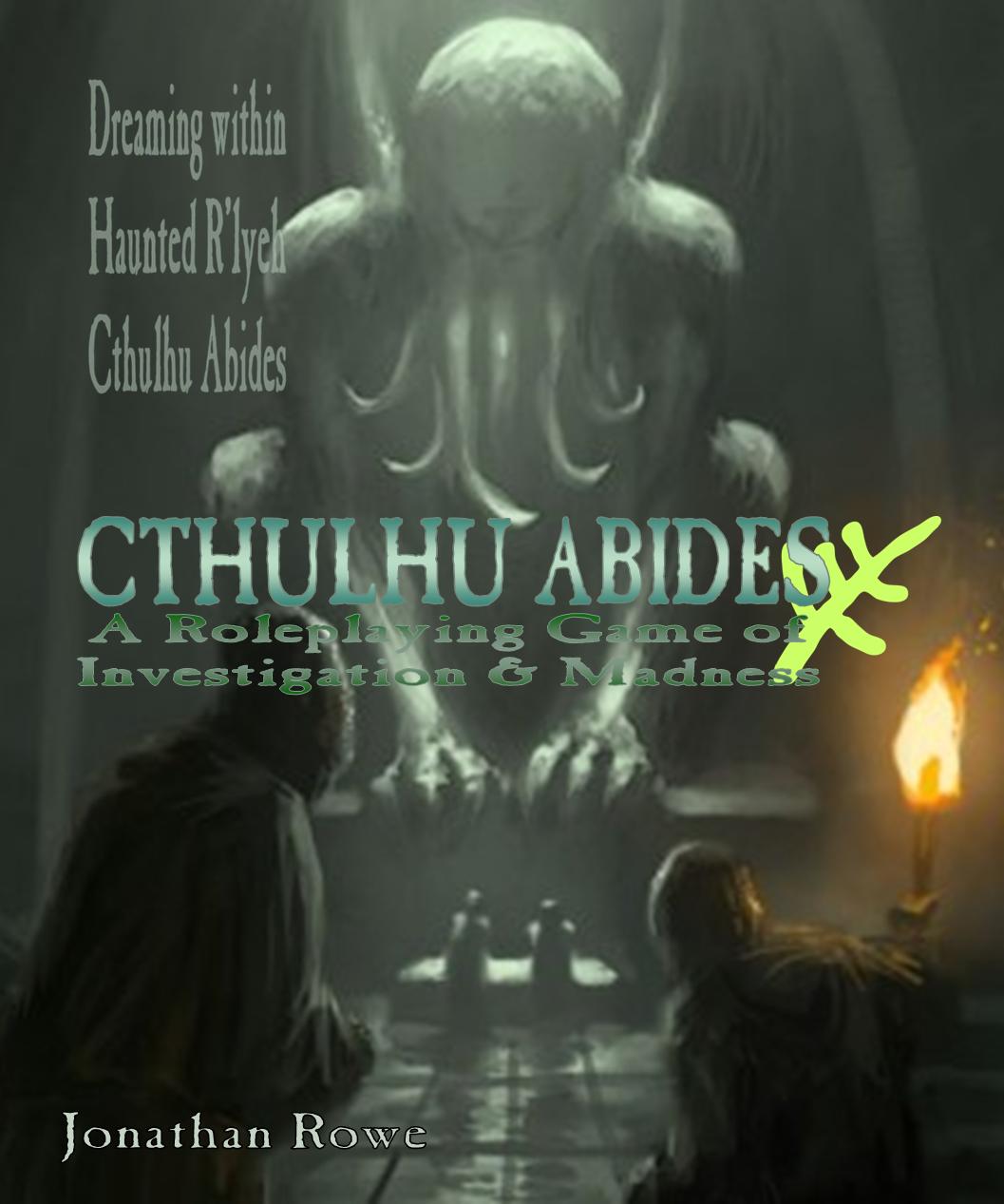|
The Inn of the Cold Companion is a 30-minute Dungeon Challenge, as set out by Tristan Tanner in his Bogeyman Blog. I hope it will inspire other people to create some of their own and send them to me - so I can hand out free copies of Forge Out Of Chaos as prizes in the January 2020 competition I used Tristan's optional tables to create an extra discipline for this 10-room dungeon: empty rooms that point to a combat, reveal history and offer something useful to PCs; the special room provides a boon for a sacrifice; the NPC is a rival; the combat encounters are a horde of weaklings, a pair of toughs and a tough boss; the traps are inconveniencing and incapacitating. Background (Referee only) The Inn is a place in the realm of death where the souls of the dead gather on their way to the Netherworld. It was once a real Inn that entered the realm of death when the Innkeeper Rosenkrantz, deranged by grief after the death of his wife Ophelia, burned it down around him. Dead souls will not rest here long, before the Cold Companion (an avatar of Death) comes to collect them. Dead souls do not realise they are dead: they believe they are resting on a long journey but have only hazy ideas about their destination. They also do not know their names and the only treasure they carry are two silver obols each (the coins to pay for their passage). In this scenario, the players are members of a party of adventurers who have died in a disastrous dungeon encounter, but in the living world their cleric-cum-medic is struggling to revive them. Hook You are bone-weary from travelling and there are still leagues ahead of you, but the last light of a wintry day shows a roadside inn ahead, with a lantern glowing faintly above the door. The creaking sign bears the name ‘The Cold Companion’ and the image of a feral child with sparkling eyes. Your rations are spent and your waterskins empty, but there are coins jangling in your purses. You enter, look for rest and perhaps fellowship from other travellers on this dismal highway. Special Rules In this scenario, characters do not know their Names (q.v.) when asked and cannot remember each other’s names or even think of any names at all. Players can describe their appearance and origin (but no names, of countries or towns) and know each other’s achievements (famous deeds, reputation, shared exploits, but no names of places or enemies) and may refer to each other by this (‘Dwarf’ or ‘Goblin-killer’ or ‘Elf-lover’). The only exception is priests who will remember the name of their god. The players have no rations (all spoilt), water or wine (spilt or sour). Forge characters have no armour repair kits, binding kits or healing roots. If players bought these accessories, they are mysteriously rotted or simply vanished. Regardless of initial moneys or treasure from previous adventures, each character has just 2 silver pieces (obols) on their person. Fire cannot be lit in the Inn, except for Rosenkrantz’s candle. Spells which create magical fire will not cause other objects to burn (exception: room 6). The rooms are lit by an eerie radiance from the windows; shuttered rooms are pitch black until the shutters are opened. The Cellar (8 and 9) is pitch black unless Rosenkrantz is there with his candle or magical illumination is used. The candle in 7 will help the PCs a lot. Allow players to discover these absences and mysteries through play (i.e, when asked their name or when they try to pay for something). 1. The Common Room This is the public bar with three long trestle tables and benches set around a big stone Fireplace (10) which is piled with kindling but unlit and cold. There is a bar, with shelves behind holding tankards and bottles, and big tuns at either side with spigots for dispensing beer or cider - but everything is utterly tasteless. The room is high-ceilinged (20’) and overlooked by a minstrel’s gallery (3). The windows to either side of the fireplace present a Spectral Vista as will the door if PCs try to leave. If the PCs make noise or call for service, Rosenkrantz will appear, pretending to be the innkeeper. If the players spend too long here or return to this room, the Undead Patrons will arrive. 2. Corridor of Windows This dark corridor is lit by the windows, which present the same Spectral Vista. When the PCs cross the corridor, skeletal hands break through the windows and attack. Each PC is grabbed by 1d4 hands, which attack as 1HD monsters (Forge: as AV 2) and deal 1 damage. PCs who are grabbed may be pulled through the window on the following turn; they must Save vs Death (D&D, at +4), with a -2 penalty for each hands holding them. An ally may try to save a character being pulled through the window: this allows a second Saving Throw with an additional +2. The arms may be turned as Skeletons or attacked (treat armour as leather and a single hit destroys one). If the PCs returns to this corridor or pass through in the company of Rosenkrantz (when he shows them to their rooms), the windows will be once again intact but the arms will not appear. There are three staircases: up to the upper floor (4), up to the Minstrels’ Gallery (3) and down to the Cellar (8). 3. The Minstrels' Gallery This balcony commands a view of the Common Room (1) 10' below. While PCs are up here, the Undead Patrons will arrive. There are musical instruments here (harp, lute, citern, recorder, violin) and any PC will find themselves able to play mournful tunes on them. A character who can play or sing will find themselves able to recall a sad ballad of the death of a beautiful woman named OPHELIA; the singer can bestow the name on one character (including him or herself). 4. Shadowy Hallway The only light in this corridor comes from the window at the far end, which presents a Spectral Vista. A dark shadow lies across the floor. Anyone stepping on it must Save vs Death (Forge: at -2) or fall into it, disappearing. Anyone putting their hand into it feels numbing cold and cannot use their arm for 1d12 minutes. Objects placed in the shadow are withdrawn covered in frost. Any PC falling into the shadow arrives at the front door of the Inn all over again, in the company of anyone dragged through the windows (2), with no recall of being here previously and any Names (q.v.) that have been learned are forgotten. The shadowy hole temporarily disappears in light: from a candle (in 7 or carried by Rosenkrantz) or magical illumination) but reappears in darkness. Players might use this to their advantage against the Cold Companion. 5. The Guest Room This room is unlocked but, if Rosenkrantz shows the PCs to a room, he will bring them here and lock them inside. There are six bunk beds and a chest for goods and several weatherstained cloaks on hooks. Scratched on the inside of the door is a message: THE COLD COMPANION IS COMING. Under one of the beds is an old pair of boots with a name written inside: YORICK; anyone putting on the boots acquires the name. Characters who sleep in this room dream of dying in battle against monsters in an underground dungeon; one character hears their name being called over and over from the Well (9) downstairs. The window is shuttered but, if opened, reveals a Spectral Vista. 6. The Innkeeper's Room This room is locked and piled with junk: the possessions of former travellers can be determined on a random item table. The room smells of soot and ash. The Innkeeper’s Ledger is kept here and bears the Innkeeper’s name ROSENKRANTZ on the inside cover. Under the bed is a sack containing thousands of silver pieces: the payments of countless previous guests. This is the only room in the Inn where fire can be started and objects can burn: if a fire is started here, creatures inside take 1d6 damage on the first round, then 2d6, then 3d6 and so on. If the PCs do not summon him to the Common Room (1) or discover him in the Cellar (8), Rosenkrantz can be found here, counting his coins. 7. The Master Bedroom The door is locked and Rosenkrantz does not have a key to it; listening at the door, PCs will hear a man sobbing but if they enter there is no one within. If someone bearing the name of 'Ophelia' is present, the door will open for them. This grandly appointed room has shuttered windows that display a Spectral Vista if opened. The bed is laid for a funeral, with vases of flowers: rosemary, pansies, daisies, violets and rue. An ever-burning candle (similar to Rosenkrantz's) is set beside the bed and can be taken by the PCs; it sheds light in a 10' radius. Paintings on the wall show the Inn in a busy city street; a portrait of the Innkeeper and his beautiful wife; a deathbed, clearly in this very room, with the Innkeeper grieving; a terrible fire burns the inn down, the Innkeeper clutching a ledger can be seen in the window of the Innkeeper’s Room (6). The final picture shows a creature advancing through the doorway to the Inn: a pale child with sharp teeth and shining eyes. The Innkeeper in the paintings is not the one the players might know as Rosenkrantz. 8. Cellar If the PCs did not summon him to the Common Room (1) or find him in the Bedroom (6), Rosenkrantz is down here, endlessly dragging heavy barrels around while he repeats his name over and over to himself. He will offer to show PCs to the Common Room (1) then bring the Innkeeper's Ledger and then escort them to the Guest Room (5). He will go to great lengths to stop them discovering the Well (9). 9. The Well of Souls The well is a deep shaft in the floor, near;y 10' across. A voice calls out of it, calling to one of the characters by name (determine which player randomly: that PC now knows their name). Any character trying to descend into the well falls into darkness and experiences the Medical Intervention. This character then wakes up in the Master Bedroom (7). 10. The Cold Fireplace After the Medical Intervention or the final Spectral Vista occurs or when Rosenkrantz lights it, the fireplace erupts with blue flames that give off no heat. After 1d6 rounds, the Cold Companion enters the Inn, seeking out any characters without names. If the PCs defeat the Cold Companion, they awaken in the living world. 'Rosenkrantz' This is another dead soul, a thief, who has been at the Inn for untold ages. When he arrived here, he stole the Innkeeper’s name (Rosenkrantz) so that the Cold Companion took the old Innkeeper instead of him. Rosenkrantz plays the role of an oily and obsequious Innkeeper, but delights in the players’ confusion and enjoys taunting them by asking them for their names on any possible occasion and teasing them with the imminent arrival of the Cold Companion. He carries a smelly tallow candle at all times that never goes out; he will not share it with guests or let anyone else use it to light the Fireplace. He also carries keys to lock rooms 5 and 6. He has the following rumours to impart:
Rosenkrantz cannot be killed except by the Cold Companion or by a fire in room 6. However, if the players acquire the Ledger and steal his name, the former-Rosenkrantz will use his candle to light the Fireplace (10) and summon the Cold Companion, hoping to trick the players into giving him back his name in return for protection (a lie: he has none to offer). The Ledger If the PCs summon Rosenkrantz to the Common Room (1) or meet him in the Cellar (8), Rosenkrantz will offer to provide them with a room at a cost of 2 silver pennies. He will ask them to sign the Ledger (and might have to head off to room 6 to fetch it if encountered in the Cellar). The ledger is full of pages where previous guests signed in (as the nameless players must do) with X. The inside cover has an inscription: ROSENKRANTZ, HIS BOOK, AND HIS LOVELY WIFE. Any character holding the book and reading this aloud acquires the name of Rosenkrantz and the previous Rosenkrantz becomes nameless. The Undead Patrons Two leather-armoured warriors arrive at the Inn, demanding service. If the PCs do not interact with them, Rosenkrantz will appear with his Ledger and book them in: they too have a pair of silver obols each. The nameless men are cheerful and keen to talk and play dice with other guests. They will explain how they were exterminating the undead in a haunted cemetery just last night; their companion was killed by an undead creature and they buried him; they had been concerned that he might rise as an undead monster himself and come after them, but clearly that has not happened, which is why they are celebrating. During the interaction, the Patrons start to change, because of course they were killed in the night by their former-friend and are now turning into undead themselves.
Medical Intervention The player in the Well (9) experiences waking up in a dungeon corridor, surrounded by corpses. A female cleric (Forge: Berethenu Knight) is trying to staunch their wounds and pleading with them to ‘stay with me’. The player can utter three words before the vision ends and they return to the Inn. This scene is really happening in the living world. The corpses are the other PCs, killed in an attack by wandering monsters. The cleric is GERTRUDE and if asked she can offer her own name, the name of the dying PC and any other names that a three word question could elicit. After the Intervention, the fire lights in the Chimney (10) and the Cold Companion will soon appear. The PC awakes in the Master Bedroom (7). Names It is vital the players acquire names. They might steal ROSENKRANTZ’s name from the Ledger, acquire OPHELIA from performing music (3) or learn their own names or that of GERTRUDE from the Medical Intervention; YORICK can be discovered in the Guest Room (5). Clerics (Forge: Grom Warriors/Berethenu Knights) will know the name of their god and can take this name upon themselves, once only for 1d6 rounds. Spectral Vistas Looking out of the Inn (from rooms 1, 2, 4, 5, 6 and 7) reveals a supernatural landscape. Roll 1d6 for each different occasion, adding +1 for each previous Vista that has been viewed.
The Cold Companion This avatar of Death appears as a pale and feral-looking child, with razor sharp teeth, glittering eyes and sharp, filthy nails. It moves to attack nameless characters and ignores those with Names. Characters killed by the Cold Companion turn into balls of floating blue fire, which the Cold Companion gobbles up: this also takes 1 round, buying respite for other PCs. If a named character deals damage to the Cold Companion, it will be able to attack once in retaliation. The Cold Companion appears when a now-nameless ‘Rosenkrantz’ summons it, in which case it eats him first (despite a scene where he pleads or promises: Death is not to be cheated by thieves), giving the PCs a melee round of respite. It also appears after the Medical Intervention or the final Spectral Vista. In D&D, treat the Cold Companion as a Wight but ignore it’s immunity to normal weapons. Level-1 PCs struck by the Cold Companion are instantly killed by the level drain unless they have a name, in which case they forget their name instead. In Forge, the Cold Companion is a Death Hag and named characters who fail to Save vs Death will forget their name rather than be destroyed. If the Cold Companion falls into the shadow pit (4) or the Well (9), it is defeated. If it can be lured to the Innkeeper’s Room (6), it can be trapped in a fire which will then spread and destroy the entire Inn. When the Cold Companion is destroyed, any remaining characters leave the Underworld and recover in the dungeon, at the site of the Medical Intervention: they have returned from the dead. Commentary "And they were really dead the whole time!" It's a cliche of TV and film, but it's still a fresh conceit in a roleplaying game. This scenario assumes the players have experienced a TPK (Total Party Kill). If the players create new characters, then the TPK is an aspect of their backstory that they have forgotten. Have fun dropping this scenario in if the players really do experience a TPK! This was my attempt to create a Twilight Zone style 30 minute dungeon. The dungeon itself took 30 minutes, but writing up the rules for Rosenkrantz, the Undead Patrons, the Spectral Vistas, etc., took longer. The scenario assumes half a dozen PCs, who could all be 1st level. If the number of PCs is half that, they should be 2nd level and the Referee should remove Yorick's Boots from room 5 and trigger the arrival of the Cold Companion as soon as there is only one un-named PC left. I hope there's some pleasure for the PCs in figuring out the Inn's mysteries: even if they quickly realise they are dead, there's still the puzzle of Rosenkrantz and the history of how they original Innkeeper destroyed himself and the Inn. The players might decide to leave the Inn. The Spectral Vistas are designed to discourage that but if the PCs insist, introduce horrid Sandworms (as in Beetlejuice) to gobble them up, with PCs awakening back at the Inn (in their Guest Room, probably) and with names forgotten, to teach them a lesson. Rosenkrantz is intended to be a nuanced NPC. I think he's been at the Inn for centuries and is quite mad. He's a mixture of humble-grovelling towards guests and smug-sarcasm, delighting in being mysterious and showing that he knows more about what's going on than he will reveal. If the players want to attack him, allow him to run into a shadow, like the one in 4 but instead of being ejected from the Inn he escapes to the Innkeeper's Room (6). This is a unique power he has learned from spending so long at the Inn. The Cold Companion is meant to be an eerie, fey sort of psychopomp. I imagine it to be Ophelia's unborn child, grown into a sharp-toothed demon-thing. It giggles in a high-pitched voice, skitters about the place on slap-slap-slap bare feet and scratches at doors with its horrid nails. It cannot be reasoned with, though it might back off (briefly) from fire or the flowers from the Master Bedroom (7). Have fun with it.
If you want a less-violent, more spiritual sort of climax, think about how the players could relate to the Cold Companion. If the Companion truly is Ophelia's unborn child who died with her mother and then was incinerated in the fire, it might be possible to reach out to her, especially if a PC has taken on the name of OPHELIA or ROSENKRANTZ and recognises the child as their own. The Companion's grieving reaction to the flowers in 7 and pained response to Ophelia's theme played on the instruments in 3 might provide clues. Alternatively, players might improvise names for themselves based on their behaviour within the Inn: 'Shadow-tripper' or 'Well-diver' are riddle-names of the sort Bilbo offered to Smaug in The Hobbit and Referees should reward this sort of creativity. It's possible that all the remaining PCs end up with names, especially if someone used their three-word question in the Medical Intervention wisely. In this case, they are immune to attacks from the Companion and Referees should not force a battle. Players might overcome the Companion by showing it kindness or simply a lack of fear. Again, Referees should reward thematic roleplaying. Conquering death doesn't have to involve killing something, after all.
2 Comments
Lucinda J Speer
2/2/2020 01:10:35 am
Wow! This is really good. I particularly like the whole "Groundhog Day" element of ending up back in the inn if you venture outside and get killed.
Reply
Thanks! My intention is that players only "re-spawn" if they are dragged out of the windows (4) or fall into the shadow hole (5) and only then if two players leave the Inn this way. I suppose anyone simply walking out the door also triggers a re-spawn. The re-spawned players forget their names all over again, so that's a setback. It was my idea that PCs who die in the Inn (e.g. by being clawed at by the hands in 4, fighting the Undead Patrons or of course fighting the Cold Companion) are simply annihilated. You might want to change that so that anyone who 'dies' prior to the climax gets a do-over.
Reply
Leave a Reply. |
30 Minute Dungeons
Essays on Forge
FORGE Reviews
OSR REVIEWS
White Box
THROUGH THE Hedgerow
Fen Orc
I'm a teacher and a writer and I love board games and RPGs. I got into D&D back in the '70s with Eric Holmes' 'Blue Book' set and I've started writing my own OSR-inspired games - as well as fantasy and supernatural fiction.. Archives
July 2024
Categories
All
|

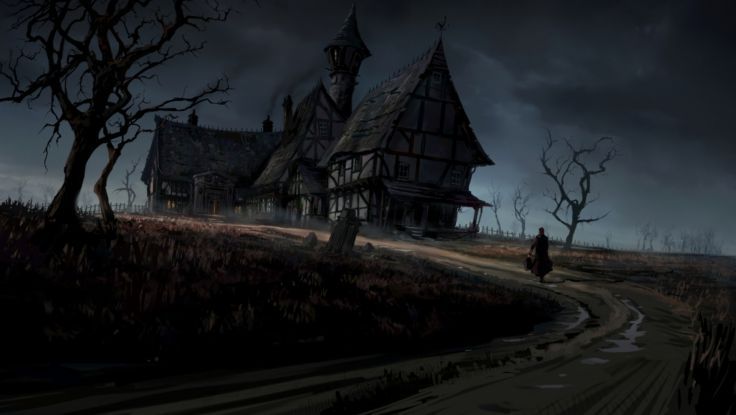
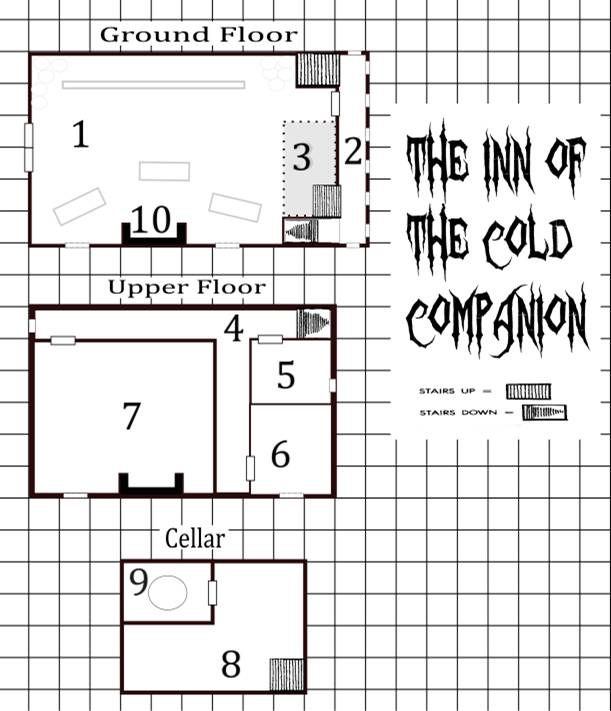
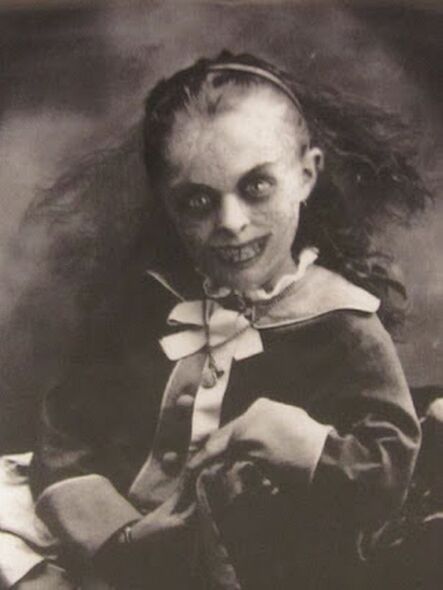
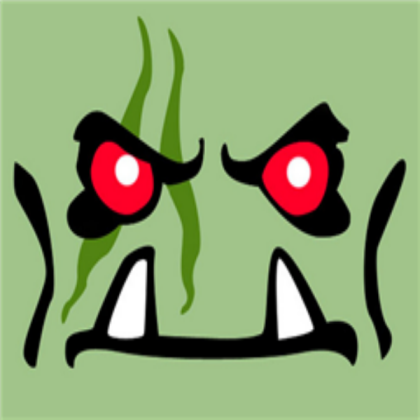
 RSS Feed
RSS Feed
